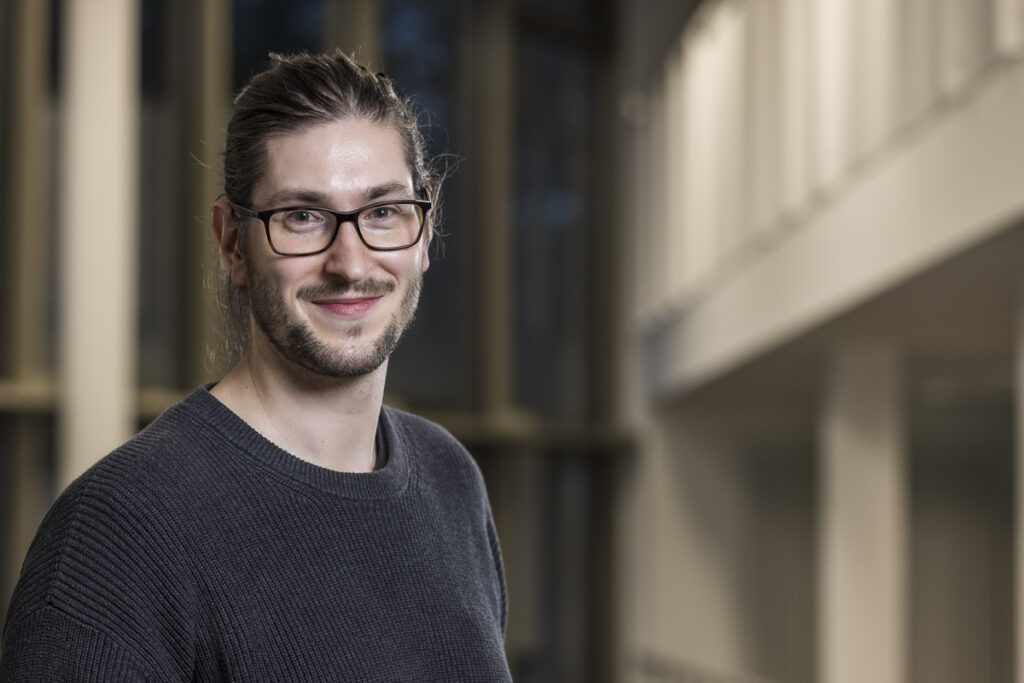Artificial Intelligence in the Judiciary
Freiburg, 19/02/2025
A new Daimler and Benz Foundation research network is studying the prospects of modern software technology in the legal system. Prof. Dr. Markus Langer from the University of Freiburg is collaborating on the project.

The new Ladenburg Research Network ‘Technological Intelligence for the Transformation, Automation, and User Orientation of the Judiciary (TITAN)’ of the Daimler and Benz Foundation will focus on the use of so-called large language models (LLM) in the judiciary. Researchers from seven universities are collaborating on the project, including Prof. Dr. Markus Langer, head of the Department of Work and Organizational Psychology at the University of Freiburg. The director of the project is Prof. Dr. Anne Paschke from the Technical University of Braunschweig. The Daimler and Benz Foundation is providing around 1.5 million euros in funding over three years for the project.
Systematizing the handling of artificial intelligence in the judiciary
The main task of the judiciary is to create, interpret, and apply legally relevant texts. Actors occasionally already use AI systems like ChatGPT for this today – but until now only in an uncoordinated manner. The intention of the new project is to help systematize the use of learning software, because artificial intelligence opens up unforeseen possibilities: routine tasks can be automated, complex problems easily solved, and individual needs anticipated. At the same time, however, this involves risks, and users have reservations, hopes, and fears. ‘In the Ladenburg Research Network TITAN, we want to investigate whether artificial intelligence can fulfil functions in the judiciary efficiently, thus strengthening basic rights, democracy, and the constitutional state’, explains Paschke. An essential precondition is acceptance by members of the judiciary, lawyers, and administrators of justice.
Dealing with overly high expectations and excessive confidence in artificial intelligence
Langer is heading a subproject of the Ladenburg Research Network that focuses on the interface between psychology and artificial intelligence. It will address the following central research questions: ‘How do AI-based systems need to be designed to actually make working conditions in the judiciary better? How should we deal with overly high expectations and possibly excessive confidence in AI in the judiciary?’
A wide range of collaborating disciplines
A wide range of disciplines are collaborating on Paschke’s project: legal informatics, business economics, and work and organizational psychology, as well as public law, civil law, criminal law, and theory of law. For the efficient use of AI systems, the experts aim to identify specific fields in the judiciary in which software technologies can provide humans targeted support and lighten their workload. This will involve defining and ensuring the legal framework for the various use scenarios. In addition, the researchers will address central psychological issues, such as trustworthiness, the organization of work and change processes, and the felt responsibility of the individual actors. According to the experts, other contributing factors to the future acceptance of digital transformation processes are agile organizational forms with rapid decision-making processes, a high level of personal responsibility, and acceptance of mistakes. The researchers also want to consider the views of external stakeholders and international perspectives.
Seven universities, one project team:
Technical University of Braunschweig
Prof. Dr. Anne Paschke (coordinator and project director), public law and digital law
University of Göttingen
Prof. Dr. Philipp Reuß, MJur (Oxford), civil law and civil procedural law
University of Konstanz
Prof. Dr. Liane Wörner, LL.M. (UWMad), criminal law and theory of law
Saarland University
Prof. Dr. Dominik Brodowski, LL.M. (UPenn), criminal law and digital law
Technical University of Munich
Prof. Dr. Matthias Grabmair, LL.M, legal informatics
Prof. Dr. Isabell M. Welpe, strategy and organization
University of Freiburg
Prof. Dr. Markus Langer, work and organizational psychology
Stanford University, USA
Prof. Dr. Daniel E. Ho, legal informatics and political science
The group of researchers will begin studying the use of artificial intelligence in the judiciary immediately in the context of the Ladenburg Research Network. The Daimler and Benz Foundation is providing the research network around 1.5 million euros in funding for three years.
Further Information
The Ladenburg Research Networks are a major funding programme of the Daimler and Benz Foundation. The format offers researchers the opportunity to work on topics within an interdisciplinary network over an extended period. The foundation publishes calls for applications at irregular intervals for this purpose.
The Daimler and Benz Foundation fosters science and research by establishing innovative and interdisciplinary research formats. The foundation devotes special attention to the promotion of young researchers through a scholarship programme for postdoctoral researchers and by awarding the Bertha Benz Prize. Several lecture series aim to strengthen the public visibility of science and emphasize its significance for our society.